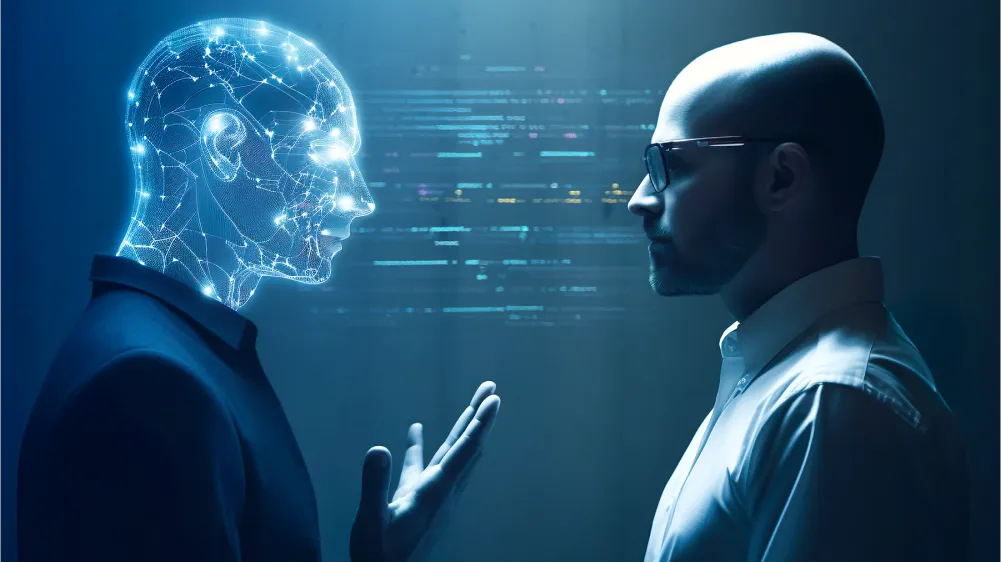As the world rushes headlong into the era of automation, machine learning, and large language models, one uncomfortable truth continues to surface — AI fails when the human is removed from the equation. Behind every great algorithm lies something machines can’t replicate: judgment, empathy, and the ability to understand meaning beyond data.
While Artificial Intelligence (AI) has revolutionised the way we analyse information, predict outcomes, and scale decisions, it remains inherently limited without Human Intelligence (HI). This balance — the partnership between human and machine — defines whether an organisation thrives or falters in the digital age.
1. The Illusion of Objectivity
AI systems are often celebrated for their objectivity. Yet, data itself is rarely neutral. Algorithms are trained on historical patterns — many of which reflect bias, inequality, or outdated assumptions. Without human oversight, AI can amplify these flaws rather than correct them.
For example, an AI may flag an employee as “underperforming” because their productivity metrics dipped, but it takes a human to see that the real issue might be team morale, unfair workloads, or emotional fatigue. The human context is what transforms insight into understanding.
2. HI: The Missing Layer of Meaning
Human Intelligence (HI) is not just about cognitive power — it’s about perception, creativity, and emotional resonance. Humans can connect patterns that AI cannot see, read between the lines, and sense when something “feels off.”
In performance management, AI can track patterns, measure sentiment, and predict attrition. But only a manager can interpret those signals in light of personal relationships, organisational culture, and nuance. HI transforms numbers into narratives.
3. When AI Operates Alone — and Fails
History is filled with examples of systems that failed because they relied solely on automation. From financial trading algorithms that collapsed markets in seconds to recruitment AIs that unintentionally discriminated against candidates, removing human judgment leads to systemic failure.
Machines operate on logic; humans operate on wisdom. When one works without the other, cracks appear — in accuracy, ethics, and trust.
4. The Symbiosis: HI + AI
The most powerful systems are not human or artificial — they are augmented. In this model, AI does what it does best: processing vast data, identifying anomalies, and revealing trends. Meanwhile, HI steps in to interpret, adapt, and act.
In an organisational setting:
-
AI can analyse performance data and highlight behavioural trends.
-
HI can interpret the emotional and cultural meaning behind those trends.
Together, they form a closed loop of insight and action — a living system where data informs decisions, and humans refine the intelligence that drives it.
5. The Future Is Human-Centred Intelligence
We are entering an era not defined by Artificial Intelligence, but by Augmented Intelligence — where human experience remains the anchor of decision-making.
Companies that succeed will be those that design AI systems around people, not in place of them. Systems that understand tone, empathy, and ethics. Tools that inform managers, not replace them. Insights that drive conversations, not commands.
AI without HI is like a compass without a map — it points somewhere, but not necessarily where you need to go.
6. Reframing the Conversation
The narrative should not be “AI vs. humans” but “AI powered by humans.” When AI automates data, HI humanises insight. When AI predicts, HI questions. When AI scales, HI guides.
In performance, leadership, and culture — this union is non-negotiable. Machines can learn patterns, but only humans can learn purpose.
Conclusion: The Human Imperative
As organisations rush to adopt AI, the danger lies not in machines becoming too intelligent — but in humans becoming too absent.
Artificial Intelligence can do extraordinary things, but it cannot care, empathise, or take responsibility. That’s where HI steps in.
The future will not belong to those who automate everything. It will belong to those who know when not to.


